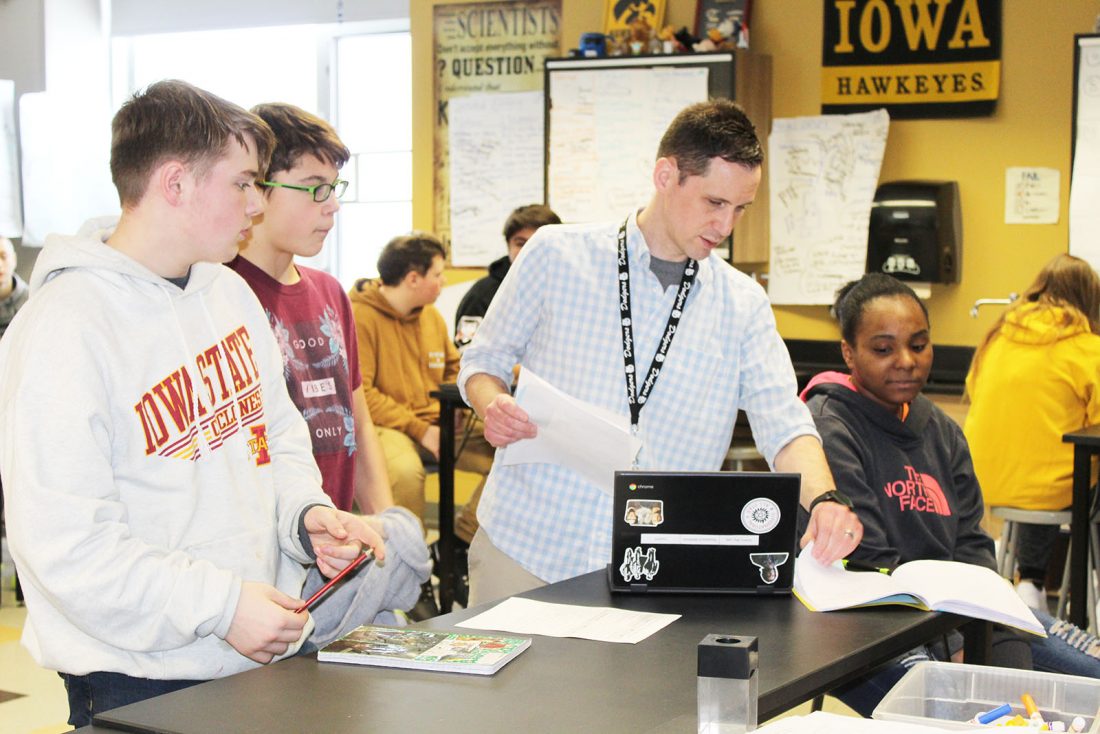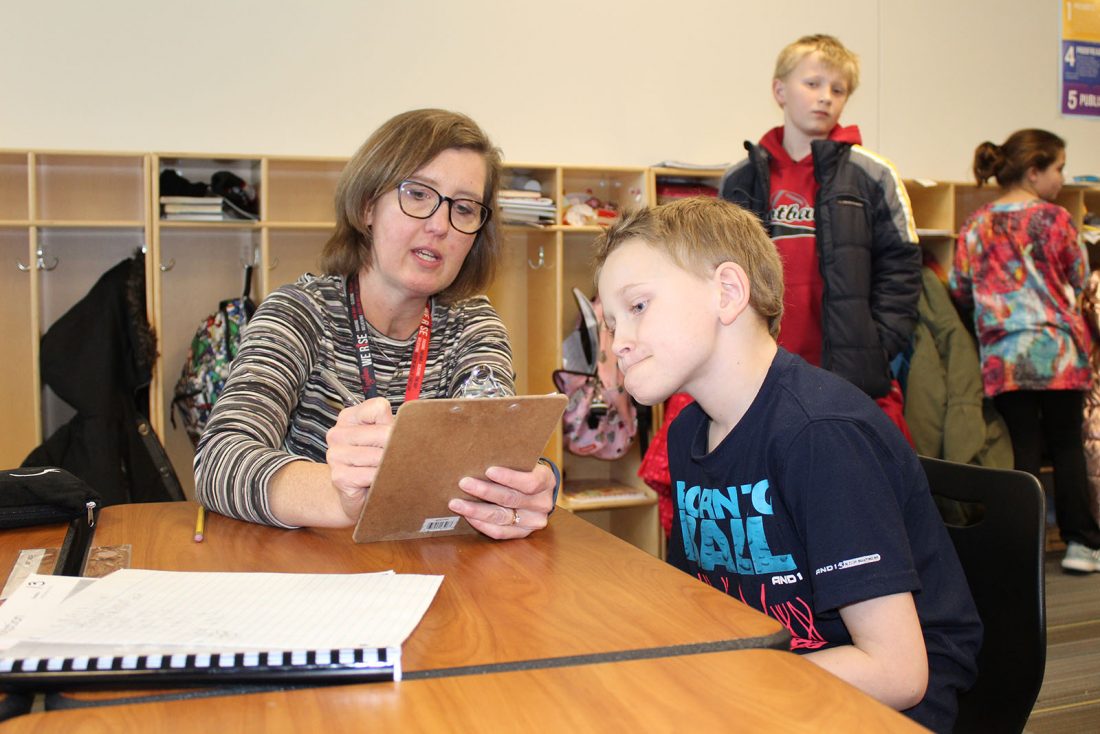FD Schools Starting New Science Curriculum - from The Messenger
Students in the Fort Dodge Community School District will notice more opportunities to work and learn like scientists in their classrooms this fall.
In May, the FDCSD Board of Education approved the adoption of new science curricula for the entire district. The program will largely be from free, open-source curriculum developers, saving the district hundreds of thousands of dollars in textbooks that need to be updated every few years.
All of the material aligns with the state of Iowa’s New Generation Science Standards.
At the elementary level, the schools will be using science curriculum from K-5 Assist.
“It’s a curriculum that I think is going to be really easy for our teachers to use,” said Kristin Hatton, a fourth grade teacher at Duncombe Elementary School. “It uses many of the same protocols and procedures that we use in our Language Arts program, so both teachers and students will see that there is kind of crossover and connection between our curricula.”

The program is student-focused, with the students’ questions driving the lessons. The students will build on these lessons throughout the year and throughout the rest of their education, Hatton said.
Hatton said that while she hasn’t yet had the opportunity to try any of the curriculum’s units on her students, she’s done a Zoom meeting with one of its authors and is confident going into this fall.
“This will be a growing year for all of us because this will be new,” she said. “We’re excited.”
The students at Fort Dodge Middle School will learn from the OpenSciEd curriculum.
John Newman, an eighth grade science teacher at FDMS, said the move to a different curriculum was a necessary one.

“When Iowa first adopted the NGSS, it became pretty evident that we can’t continue to teach the way that we’ve always taught, where it was very much teacher-centered and you relied on the teacher to tell you what to do that day, to a much more student-centered way where kids are working like scientists and figuring out the information through discovery,” he said.
To Newman, the question was “How do we adopt curriculum that moves teachers away from traditional teaching to a more student-centered focus where we’re empowering students to take charge of their education and take ownership of their learning?”
The answer was OpenSciEd.
Through the OpenSciEd curriculum, Newman and other science teachers will present a “phenomenon” to the class – like a car playing loud music causing windows on nearby buildings to shake – and have them discuss what they think caused the phenomenon, and go from there.
“The kids are leading the conversation, I’m just listening,” Newman said. “The students are really driving the learning.”
Newman said that when looking at new science curricula, he was concerned about equity among his students.
“Knowing that we have a diverse population with different backgrounds, how do we find something that gives every student an equal starting point, that we can all work together to figure out the information?” he said.
The students at Fort Dodge Senior High will work with a few different science programs, depending on the course they’re taking.
FDSH science teacher Lauren Winter teaches ninth integrated science, chemistry and upper-level physics.
“We’re doing kind of a mixed bag of things because at the high school level, there’s not really one curriculum developer that works for all of our courses,” Winter said.
For her ninth graders, she works with Concord Consortium Interactions, an online curriculum. Other classes, like biology, chemistry and physics, may use NextGen Storylines or InquiryHub.
Winter said that a lot of the things the ninth grade integrated science students study are things they can’t physically see or touch, like atoms and electrons and protons.
“The curriculum is nice because it has a lot of simulations online that they can use to help them make sense of what they’re learning and those simulations are really powerful in letting them manipulate variables and figure out things for themselves before I tell them anything,” she said.
The Concord Consortium curriculum gives students a “guiding question” that they need to answer, Winter said.
“Our first unit, the question is ‘Why do clothes stick together when they come out of the dryer?'” she said. “So that question is the foundation we build on throughout the first unit and we try to learn things to answer that question at the end.”
Winter tested a couple units from the Concord Consortium Interactions curriculum during the 2018-2019 school year. Following that, she piloted the rest of the curriculum for the entirety of the 2019-2020 school year, which she found was successful for her students.
“I think they’ve learned a lot more from this curriculum than the curriculum we used when I first started teaching at Fort Dodge,” Winter said. “We were writing our own units and I just don’t think it was cohesive or that students were building an understanding like they are with this curriculum. The units kind of build in each other and they’re getting to do a lot more hands-on stuff.”
Through these curricula, students are using a skills that scientists actually use, Winter said, rather than just memorizing facts and equations.
“They’re building on not just their content knowledge, but their skills in asking questions, being able to communicate, backing up their answers with evidence and data,” she said.
Newman thinks that these new science curricula will be beneficial to the district’s students.
“Looking long-term, once we get it going across the board, we’re going to have a lot of kids working at much higher levels than we ever have before,” he said. “If we can get kids engaged in their learning instead of it being a passive process, then I can’t see how we wouldn’t find success.”





